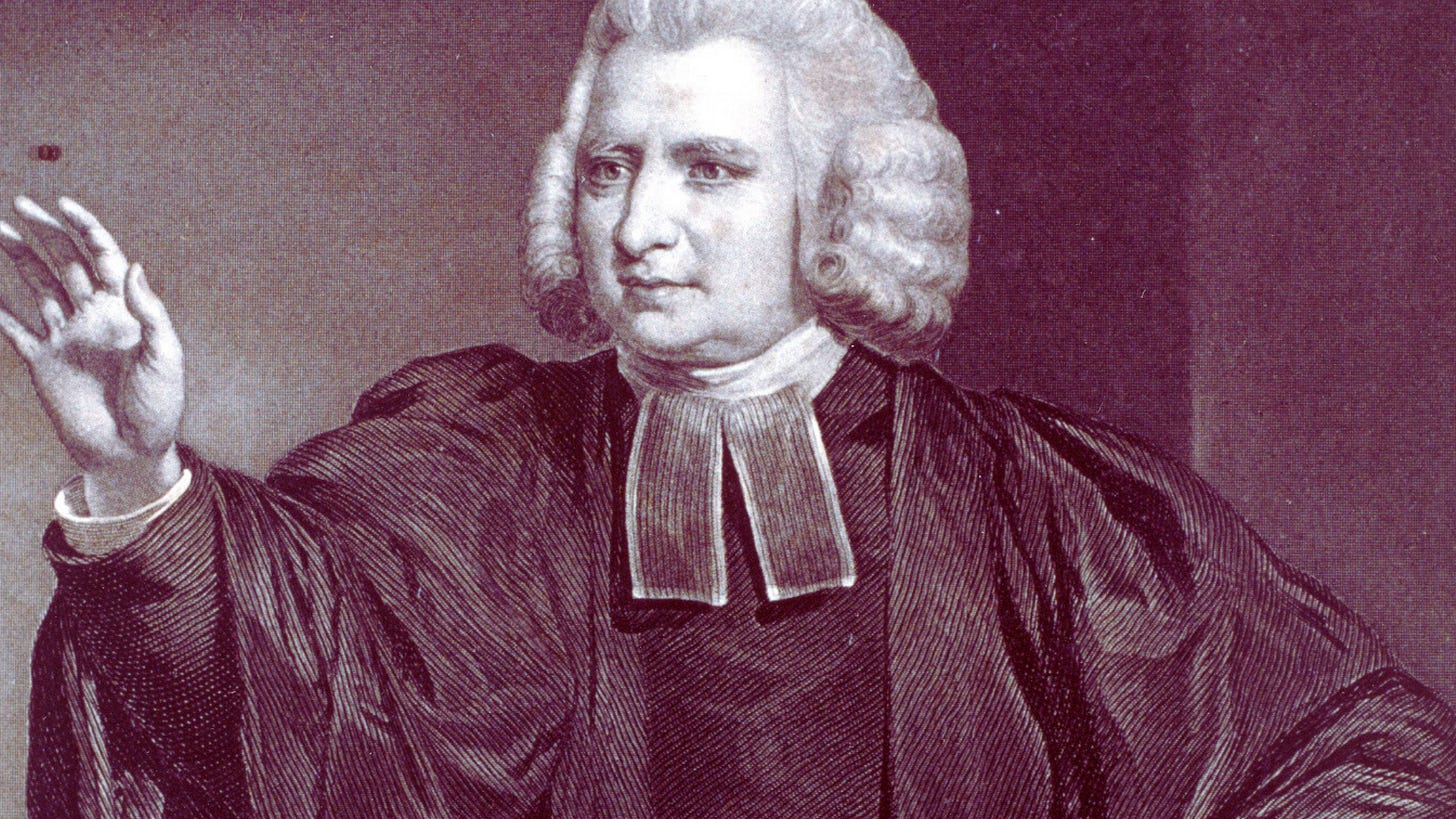And Can It Be?
Charles Wesley’s most celebrated hymn is an anthem of grace.

Those who know me best know that my favorite hymn is easily Charles Wesley’s “And Can It Be,” which is often sung to a tune called “Sagina,” composed by Thomas Campbell in the 1820s. Campbell’s rousing stanzas and pulsating refrain imbue Wesley’s words with a fittingly triumphant tone that beckons worshipers to sing anthemically of God’s free and infinite grace. Originally written in the 1730s under the apt title “Free Grace,” Charles’s lyrics are deeply rooted in his own spiritual experience and encounter with the grace of God. In many ways, “And Can It Be” is representative of the profound gospel awakening that befell Charles during the early days of the First Great Awakening.
As the story goes, a few days prior to his brother John’s now-famous Aldersgate Street experience, Charles was brought to faith in Christ under the minister’s auspices of a friend who had taken to sharing Scripture with him while he recovered from an illness. This moment constituted a genuine conversion in Charles, as the Word and Spirit of God enraptured his heart and soul with the fullness of the truth of Christ’s work on his behalf. Emerging from this experience of the law and the gospel were the words that would soon become perhaps the most famous of all the 6,500 hymns that Charles penned. The intimately personal and biblical tenor of “And Can It Be” speaks to the profundity of grace, which strikes a chord (pun intended) with every sinner and saint who’s ever lived.
Those who know that my favorite hymn is “And Can It Be” likely also know that I have often lamented how the hymn has been altered by reprintings in various hymnals. Following Campbell’s musical setting, the last two lines of each stanza are repeated, essentially serving as the refrain for each verse. The refrain for Verse 1, for example, would be “Amazing love! How can it be / That Thou, my God, shouldst die for me?” The refrain for Verse 3, however, would be “’Tis Mercy all, immense and free, / For, O my God! it found out Me!” When sung congregationally to Campbell’s tune, these stanzas foster a truly rhapsodic worship experience.
A serious pet peeve of mine, though, is when hymnal publishers decide to alter the stanzas or leave entire verses off altogether. Therefore, when I came across the lines to Charles’s most celebrated hymn in Alister McGrath’s The Christian Theology Reader, I couldn’t resist reproducing them. Truth be told, this is as much for my own benefit and posterity as it is yours:
And can it be that I should gain
An int’rest in the Saviour’s blood!
Dy’d he for me? — who caus’d his pain?
For me? — who Him to Death pursued?
Amazing love! How can it be
That Thou, my God, shouldst die for me?
’Tis mystery all! Th’Immortal dies!
Who can explore his strange Design?
In vain the first-born Seraph tries
To sound the Depths of Love divine.
’Tis mercy all! Let earth adore;
Let Angel Minds inquire no more.
He left his Father’s throne above
(So free, so infinite his grace!)
Empty’d himself of All but Love,
And bled for Adam’s helpless Race.
’Tis Mercy all, immense and free,
For, O my God! it found out Me!
Long my imprison’d Spirit lay,
Fast bound in Sin and Nature’s Night
Thine Eye diffus’d a quickning Ray;
I woke; the Dungeon flam’d with Light.
My Chains fell off, my Heart was free,
I rose, went forth, and follow’d Thee.
Still the small inward Voice I hear,
That whispers all my Sins forgiv’n;
Still the atoning Blood is near,
That quench’d the Wrath of hostile Heav’n:
I feel the Life his Wounds impart;
I feel my Saviour in my Heart.
No Condemnation now I dread,
Jesus, and all in Him, is mine.
Alive in Him, my Living Head,
And clothed in Righteousness Divine,
Bold I approach th’Eternal Throne,
And claim the Crown, thro’ Christ my own.1
The words to the final stanza are, perhaps, my favorite lines to any hymn ever written. Charles expresses the euphoric announcement of God’s good news, which definitively declares, as the apostle Paul puts it, that “there is therefore now no condemnation for those who are in Christ Jesus” (Rom. 8:1). We who were dead have been made alive in and because of Christ alone, who exchanges our tattered and torn rags of sin with his peerless and pristine robes of righteousness. Thus, as we stand before the Father, we are made to stand boldly in the radiance of his holiness, knowing that we’ve done nothing and he’s done everything. “Amazing love, how can it be,” indeed!
Grace and peace to you.
Alister E. McGrath, editor, The Christian Theology Reader, 5th edition (Chichester, West Sussex, UK: Wiley-Blackwell, 2017), 308–9.



Amen